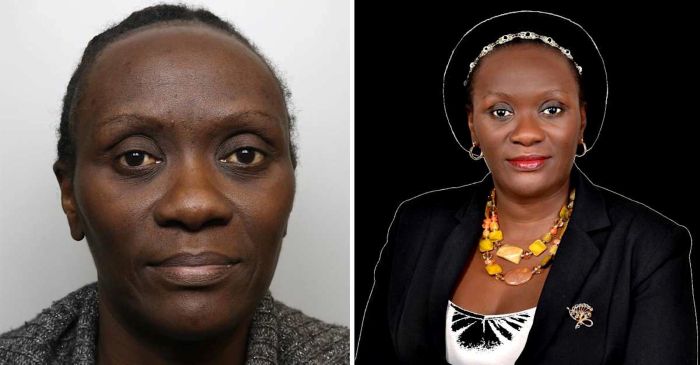UN Judge Lydia Mugambe jailed for forcing woman into slavery

In a verdict that has sent shockwaves through the international legal community, Lydia Mugambe, a distinguished Ugandan High Court judge and recently appointed UN judicial officer, has been sentenced to six years and four months imprisonment by a UK court for a string of modern slavery offences.
The sentencing, delivered by Judge Foxton at the Oxford Crown Court on Friday, marks a dramatic and deeply troubling chapter in a case that underscores how legal privilege and international status can be weaponised to perpetuate abuse — even within the sanctums of justice.
Abuse of Power in the Shadows of Prestige
Mugambe, 50, who was pursuing a PhD in Law at the University of Oxford at the time, was convicted in March of conspiring to breach UK immigration laws, facilitating travel with intent to exploit, forcing someone into labour, and conspiring to intimidate a witness.
According to the Crown Prosecution Service, the judge used her influential status to systematically exploit a young Ugandan woman, preventing her from securing legitimate employment and coercing her into working as a domestic servant and childminder — all under the guise of a trusted relationship.
Prosecutor Caroline Haughey KC painted a harrowing portrait of sustained emotional and psychological abuse. The unnamed victim, who has since been granted asylum in the UK, spoke of living in “almost constant fear” — not just in the UK but at the terrifying prospect of returning to Uganda, where Mugambe’s stature could potentially shield her from accountability.
A Legacy Tarnished Beyond Repair
The irony is bitter. Mugambe had once been celebrated for her human rights advocacy in Uganda, most notably for her judgments supporting the rights of detained mothers and underprivileged citizens. But Judge Foxton did not mince words: her actions in the UK were “the most egregious abuse of power,” compounded by a total absence of remorse.
The sentencing also came with a restraining order preventing Mugambe from contacting the victim, either directly or indirectly — a protective move that reflects the long shadow this case will cast on the young woman’s life.
Justice and Its Discontents
Interestingly, the courtroom drama spilled onto the streets, where a small group of supporters, seemingly unmoved by the trial’s findings, rallied with chants of “Justice for Lydia Mugambe” — a poignant reminder of how deeply personal affiliations and national pride can cloud the harsh realities of judicial wrongdoing.
Mugambe’s defence, led by Paul Raudnitz KC, sought to remind the court of her “glittering legal career” and referenced the support she had received post-conviction. Raudnitz confirmed that Mugambe had resigned from her UN post, which she had only assumed in May 2023 — a move that appears both symbolic and inevitable.
Judicial Integrity Under the Microscope
This case does more than convict an individual; it casts a penetrating spotlight on the ethical vulnerabilities in transnational legal circles. That a UN-affiliated judge — sworn to uphold international standards of justice — could commit acts of domestic servitude in one of the world’s most scrutinised democracies, raises urgent questions about oversight, vetting processes, and the immunity often extended to legal elites.
For the global legal fraternity, Mugambe’s fall is a stern warning: status and robes cannot mask abuse. And for the victims of modern slavery, it is a rare — if fragile — affirmation that justice can prevail, even against towering reputations.
Editor’s Take: This case is a stark and sobering reminder of the human cost of unchecked legal power. It should catalyse broader conversations around judicial accountability, victim protection, and institutional reform, particularly within international organisations that too often cloak themselves in impunity.











